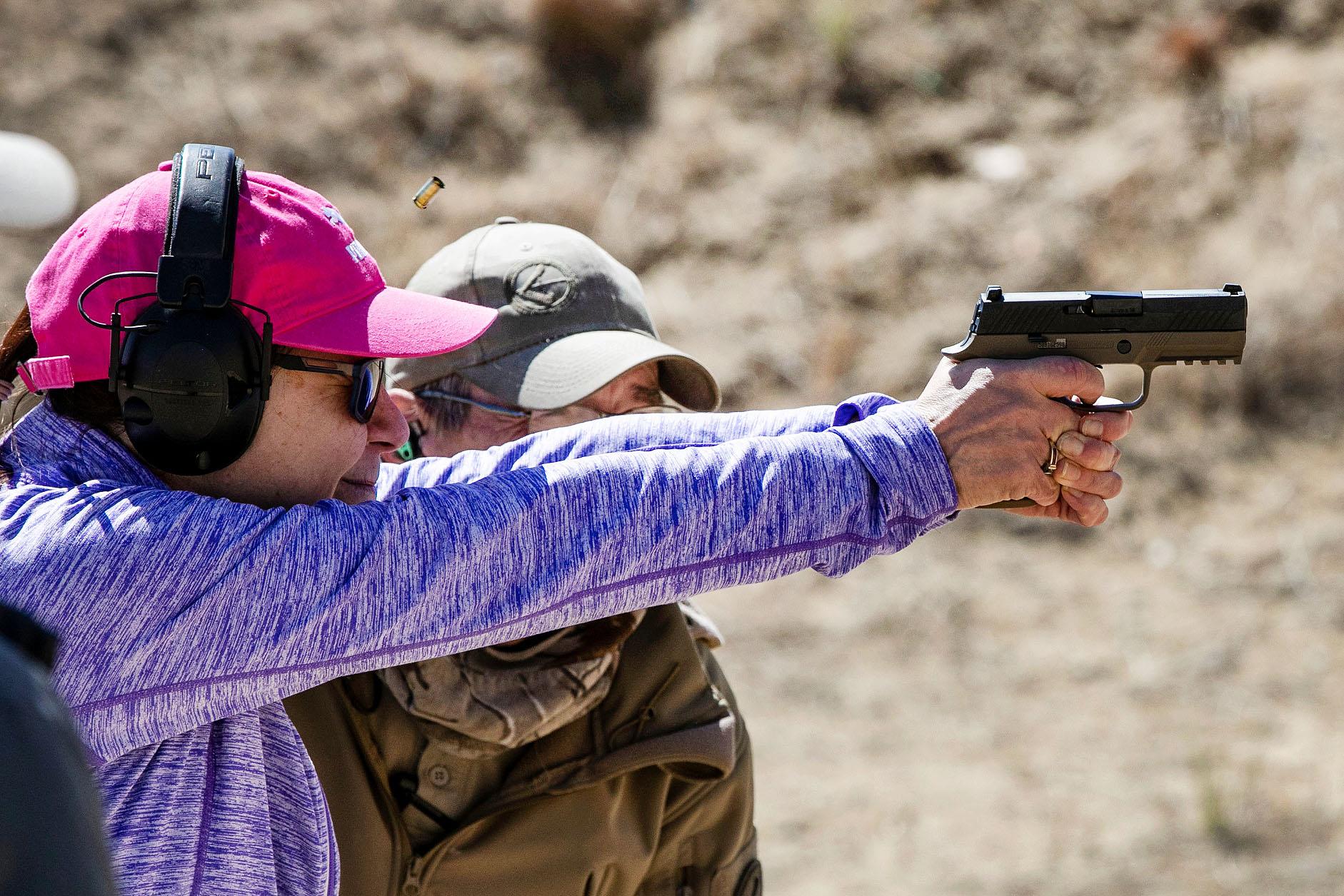
Proposition KK would levy a new 6.5 percent excise tax on gunsellers for all sales of ammunition, firearms and gun parts. The money would fund programs for crime victims and behavioral health support for veterans and youth. Democratic state lawmakers referred the tax to the ballot during the spring legislative session.
Here’s the language you’ll see on your ballot:
Shall state taxes be increased by $39,000,000 annually to fund mental health services, including for military veterans and at-risk youth, school safety and gun violence prevention, and support services for victims of domestic violence and other violent crimes by authorizing a tax on gun dealers, gun manufacturers and ammunition vendors at the rate of 6.5% of the net taxable sales from the retail sale of any gun, gun precursor part, or ammunition, with the state keeping and spending all of the new tax revenue as a voter-approved revenue change?
How would Proposition KK work?
The state would collect the new excise tax on sales from gun manufacturers, dealers and ammunition vendors with annual sales over $20,000. That tax would come on top of an existing 11 percent federal excise tax on those products.
While merchants could absorb the tax or pass it on to customers, the state estimates it would raise around $39 million annually.
Sales to law enforcement and active duty military would be exempt, as would private sales which occur between people who aren’t licensed as firearms dealers, or ammunition vendors.
The tax would go to fund a number of different things.
- The largest portion of the money, estimated to be $30 million, would go to grants for local governments and nonprofits to help crime victims with everything from counseling and legal advocacy to emergency financial assistance.
- Five million dollars would go to mental health support for veterans who have exhausted their federal benefits.
- Three million would go to support services for youth in mental health crisis.
- The remaining $1 million would be dedicated to public schools to increase school safety.
Who’s for Proposition KK?
The Democratic measure cleared the legislature with no Republican support and two Democrats opposed. It’s backed by a coalition of victims’ services organizations. The yes campaign has raised $73,000 according to the latest campaign filing report from the Colorado Secretary of State’s Office.
Supporters argue the tax is needed because funding for victim services is dwindling.
Organizations that serve crime victims are supported by the federal Victims of Crimes Act, which gets its money from court fines and fees paid in federal cases. But that fund has seen a drastic dip in recent years, with Colorado providers bracing themselves for a 40 to 50 percent drop in support next year.
Backers say this new tax would help provide dedicated and reliable funding to help crime victims and those dealing with behavioral problems. And they argue that firearms are linked to all sorts of ills, from domestic violence and suicide to violent crimes and the lasting mental health impacts of trama, so it makes sense to tax firearms to help mitigate some of those impacts.
Who’s against Proposition KK?
The National Rifle Association and other Second Amendment rights groups, including Rocky Mountain Gun Owners, opposed the proposal at the legislature. The official group opposing Prop. KK, Stop Tax Increases, had not filed any information about its finances as of Oct. 1 and is being penalized by the state for missing disclosure deadlines.
Opponents argue that while they support the goal of more funding for crime victims, taxing firearms and ammunition is the wrong approach because it forces law abiding gun owners to foot the bill for the actions of criminals. And they note these products are already subject to a federal excise tax.
Many opponents also see this as essentially a sin tax, an effort by the government to make it more expensive for people to use their Second Amendment rights, and thereby a backdoor effort to discourage them from buying and owning guns.









